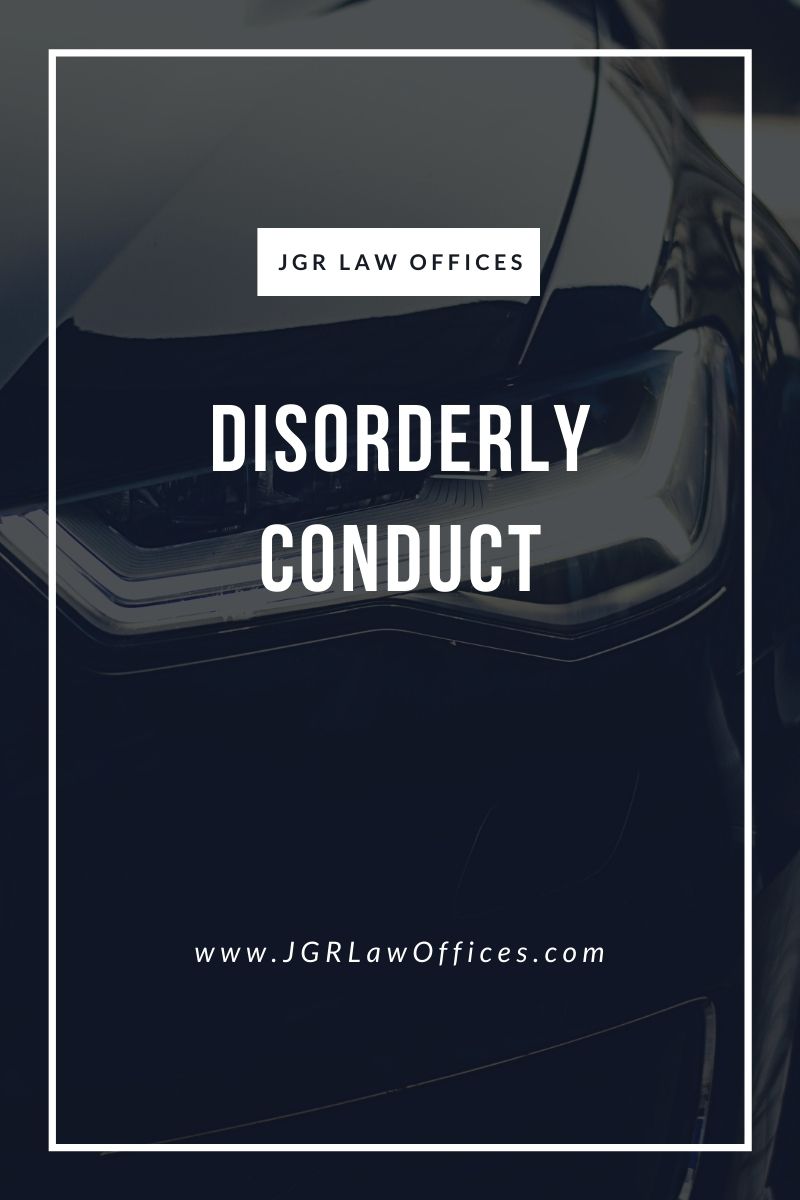Table of Contents
ToggleDisorderly Conduct
Disorderly conduct charges are usually brought about by tempers that boil over social norms. Disorderly conduct can be brought against the person responsible for escalating the situation to the point of violence. This is a criminal offense that is brought against the State (or City) and not a private individual.
According to RCW 9A.84.030, a person commits disorderly conduct if she:
1. Uses abusive language and thereby intentionally creates a risk of assault;
2. Intentionally disrupts any lawful assembly or meeting of persons without lawful authority;
3. Intentionally obstructs vehicular or pedestrian traffic without lawful authority; or
4. Meets the following:
(i) Intentionally engages in fighting or in tumultuous conduct or makes unreasonable
noise, within five hundred feet of:
(A) The location where a funeral or burial is being performed;
(B) A funeral home during the viewing of a deceased person;
(C) A funeral procession, if the person described in this subsection knows that
the funeral procession is taking place; or
(D) A building in which a funeral or memorial service is being conducted; and
(ii) Knows that the activity adversely affects the funeral, burial, viewing, funeral procession, or memorial service.
A person must be charged under the first section of the statute with inciting a fight. Although it is possible to make offensive or insulting statements about another person, there are some situations where the words reach a level where an average person would be able to understand them as provoking a fight. It is possible to be disorderly if the defendant makes statements such as, “You think that you can take me?” and “I’ll knock that smile off of your face.”
A person who shouts at City Council meetings could be charged under the second prong with disorderly conduct. This is not disorderly conduct if the person shouts or makes offensive remarks during the time they are allowed to address the Council. If the person shouts at others or continues to yell, it is likely to be considered disorderly conduct.
This third prong is mostly used for political protests. It is difficult to argue that a person who gathers with others to stop traffic for a cause would have an intention to do so. Blocking traffic shouldn’t be considered disorderly conduct if the protest organizers have the proper permits. It is possible for the protestors to be arrested for disorderly behavior if they move beyond the designated area.
Finally, disorderly conduct is when a person plans to disrupt a funeral and knows it will negatively affect the event. This is quite simple. This is a common situation.
There are positive ways to resolve a disorderly conduct charge
Although there are defenses for disorderly conduct, the defense attorney is primarily attacking the element that was intended. There may be defenses to the question of whether the defendant used abusive language or “fighting terms” depending on the crime. If the defendant was arrested for disrupting a funeral service, did he stay within 500 feet? It could be difficult to prove identity if you are arrested during a protest – or at a City Council meeting. How did officers determine that the defendant was the one yelling and causing the disturbance? Disorderly Conduct is a complicated charge. It is best to speak with an experienced criminal defense attorney to learn more about your case.
Because they are misdemeanors, Disorderly Conduct cases can be handled in District or Municipal Courts. Because they are handled by these lower courts, there are other options than going to trial and pleading guilty to a Disorderly Conduct case.
Many jurisdictions offer some type of a Pre-Trial Diversion AgreementEssentially, it is a contract between the Defendant (and the Prosecuting Authority). This type of Diversion Agreement does not give a defendant a sentence. The Court approves the contract between the parties (the Prosecutor and the Defendant). The Disorderly Conduct charge will usually be dismissed if the defendant follows the terms of the contract. The case is continued for a lengthy period of time before being dismissed. If all terms have been met, there will never be a conviction.
A defendant can always go to trial if they do not wish to resolve the matter via a Diversion. A defendant may ask the Prosecutor at trial to prove all elements of the Disorderly Conduct charges beyond a reasonable doubt.
